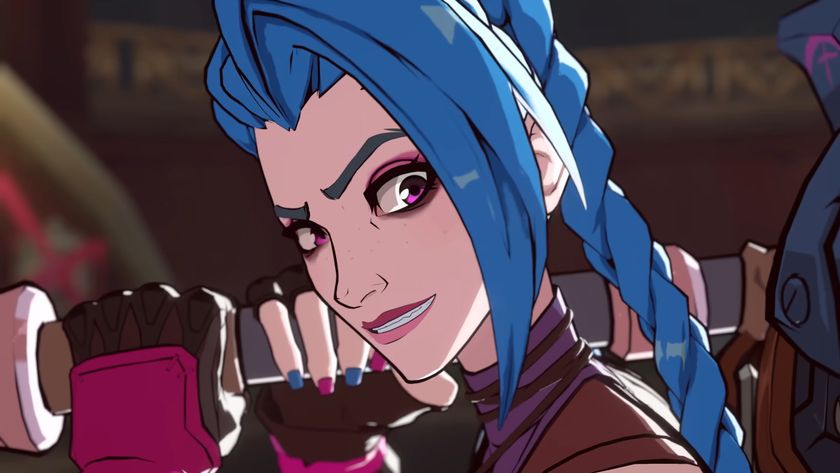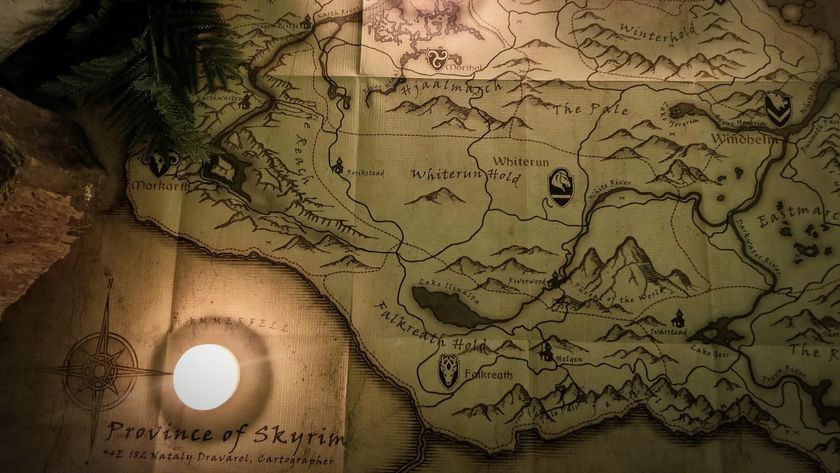Override is the bigger, dumber party brawler alternative to Super Smash Bros. Ultimate this Christmas
Punch and kick your way to victory in Override, which fuses giant robots and wrestling for a very easy sell
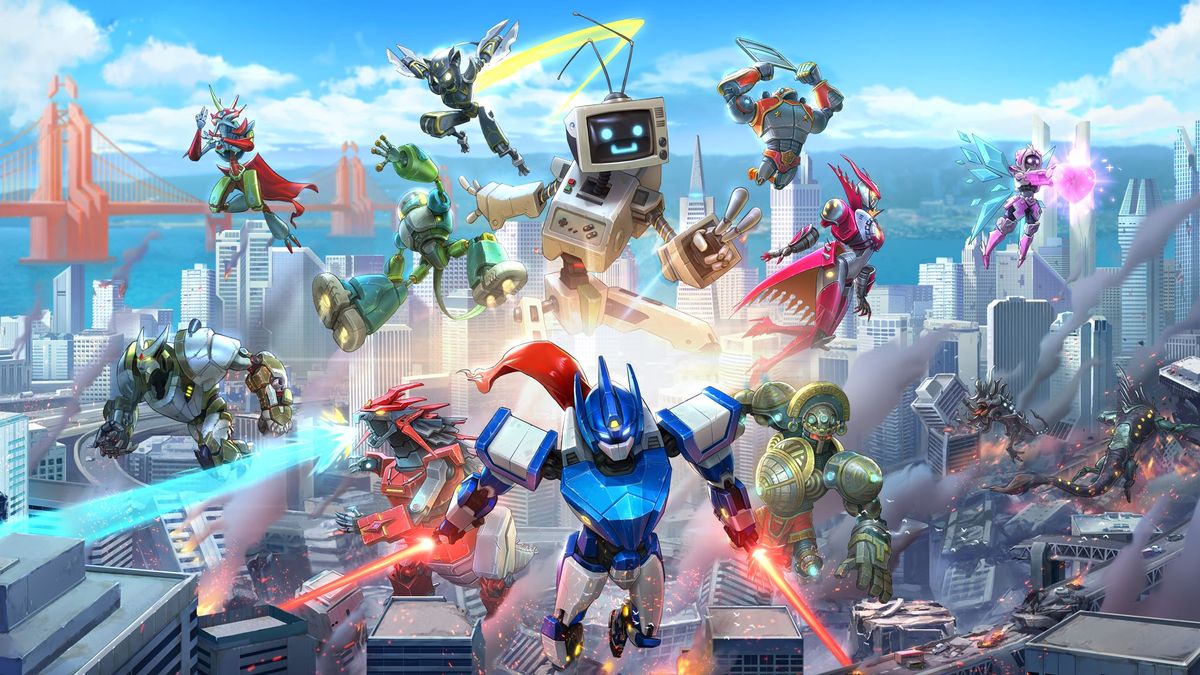
Override: Mech City Brawl isn’t technically a Pacific Rim game, but also, it definitely is. While developer The Balance Inc’s party brawler doesn’t have Guillermo Del Toro’s branded seal of approval on the front cover, the inspirations drawn from his 2013 monster movie are inescapable. Giant robots battle each other across urban metropolises, as multiple pilots (i.e. players) control each mechanised limb from the inside.

The best new games of 2019 (and beyond)
And, just like Pacific Rim, Override is unashamedly big, dumb, if somewhat unremarkable fun, at least judging from our 60 minute preview with the game in anticipation of its December 4 release later this year. Aside from the obvious allusions to Pacific Rim, Andrew Nguyen of publisher Mobus Games explains how the title was originally inspired by the popular browser game QWOP, in which those titular four keyboard letters were used to control the flailing limbs of a ragdolling athlete bound to an unswerving physics engine.
It’s devilishly hard, to the point of unfairness, but QWOP got by on the hilarity of its hairbrained conceit, and Override is aiming for the same balance. While its combat might not be the most robust or intuitive, Override’s ergonomic control scheme creates for arm and leg flailing fights that are as hilarious to watch as they are to play, particularly with the game’s considerations for multiplayer and couch co-op.
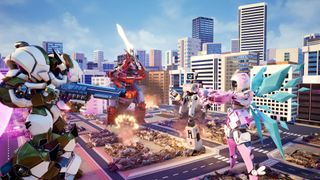
That’s because each mech’s limb is mapped to a single button on the controller in Override, so the right and left triggers activate your mech’s conjunctive leg or arm respectively. There are no combos or force multipliers to rack up during each of the five to 10 minute long battles.
Instead, the combat is more tactile, a simple science of body positioning and spatial awareness, though players can deploy up to four unique special attacks tied to each character, on top of a super that - when made available once a mech’s lifebar reaches a certain threshold - activates an anime style cutscene that shows off their traits and personality with aptly exaggerated flamboyance. Ranged and melee weapons will also fall from the sky across the diverse selection of fully destructible urban and natural landscapes, which can then be picked up to turn the tables against your enemies.
Players can even join forces to collectively control one mech between up to four pilots, with each person responsible for a specific limb or function across the robot's uniform control scheme. While it’s clear that this is hardly a recipe for tight co-op tactics, Nguyen instead acknowledges it as a great option for experimenting with friends after a few beers, as the opportunity for bedlam and camaraderie only escalates when there’s a barbershop’s quartet worth of players trying to simultaneously control one body.
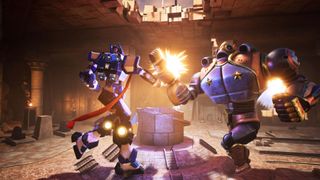
Speaking of which, thanks to this quirky feature, there are dozens of permutations for matchmaking in Override’s main battle mode, whether you’re playing online or locally with four controllers. You could have two players in one robot fighting three AI combatants, or four players across two mechs in a co-op versus battle, or a three versus one dynamic where the former is the only player with sole control of their mech. The options aren’t endless, but they’re certainly quite substantial over what you might expect from a traditional brawler of the same breed.
Sign up to the 12DOVE Newsletter
Weekly digests, tales from the communities you love, and more
"Just like Pacific Rim, Override is unashamedly big, dumb, if somewhat unremarkable fun."
Meanwhile progression is, for better and worse, limited to cosmetic items only, as players can unlock rarified tiers of skins and accoutrements for their mechs, ranging from simple colour swaps to rubber duck rings. While The Balance Inc rightly doesn’t want to upset its carefully calculated competitive balance with an unpredictable layer of customisation, this does leave Override’s sense of progression feeling somewhat limited, as there’s no ability to build mechs with different loadouts or perks for experimentation.
Indeed, it’s difficult to gauge how sturdy Override’s sea legs are to hold it up as a replayable title in the long term. Though The Balance Inc has promised a competitive mode to satiate long term players, alongside more content drops with potential new characters and maps in the future, there’s only so much mindless whacking and bashing that one can keep coming back to.
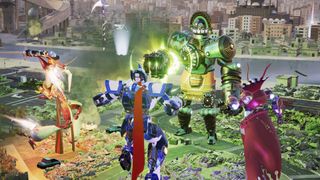
The beauty of Override’s combat is in its commonsensical simplicity, but that doesn’t leave much room for advanced playstyles or in-depth strategy, while the clunkiness of the controls may prove to bear too hasslesome for some. I didn’t get to try out Override’s campaign-like Arcade mode, which promises a “Saturday morning cartoon” style campaign with new enemies and gameplay variations, but Nguyen says it only lasts for about an hour, which sounds disappointingly short.
Then again, maybe Override doesn’t need to be like every other game in the today’s market, desperately trying to maintain our interest with service-based content models and addictive gameplay loops. As something that can intermittently be booted up at parties, social gatherings, and family get togethers, I’m pretty confident Override will satisfy. For solo players who want something to really dig their teeth into, it’s doubtful whether the game’s shallow brawls offer anything beyond the immediate satisfaction of its minute to minute combat.
See what else we have to look forward to this year with our list of the best new games of 2018, including Red Dead Redemption 2 and Battlefield 5.
I'm GamesRadar's Features Writer, which makes me responsible for gracing the internet with as many of my words as possible, including reviews, previews, interviews, and more. Lucky internet!
Most Popular





